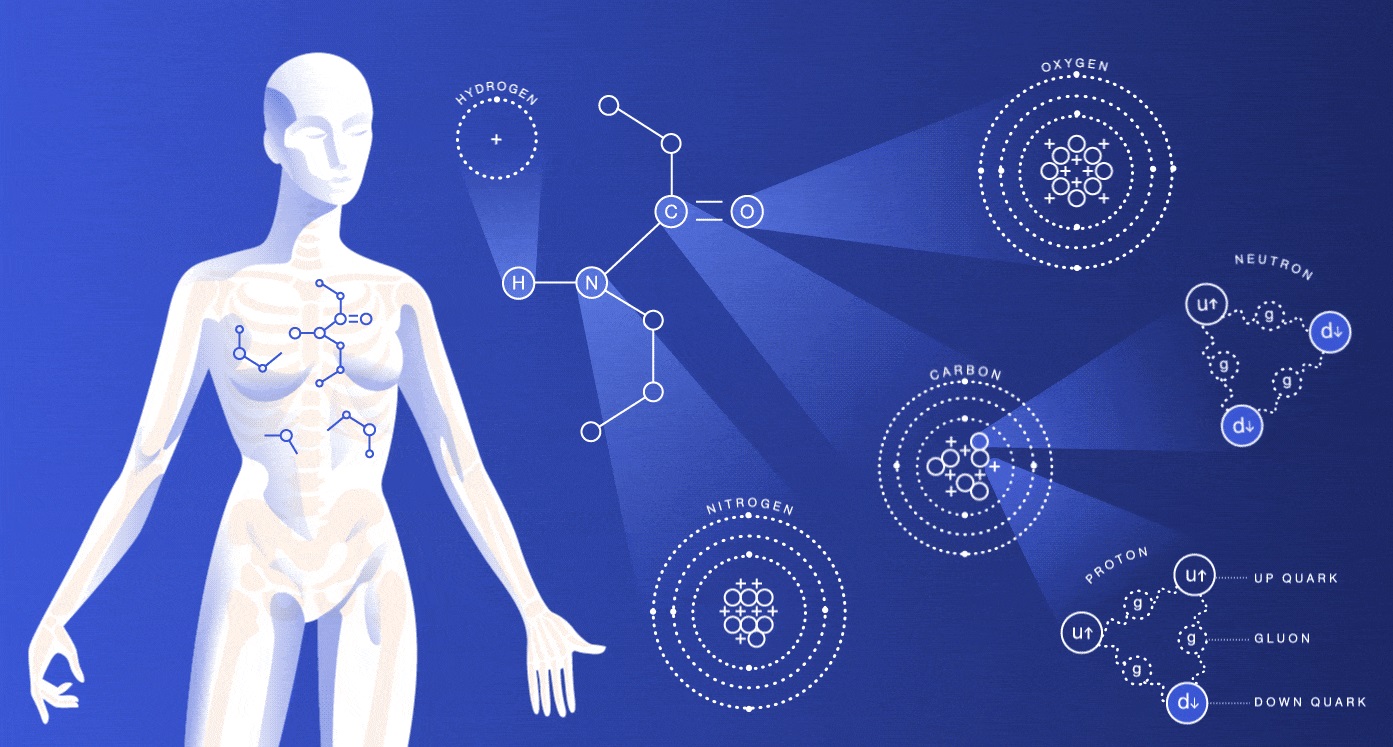Ask yourself, ‘exactly what am I?’ (I)
Exactly what are we made of? Of sperm mixed with egg; of flesh that became bones that were covered with flesh; of body and soul; of materiality and eternity. “Let man ponder that from which he has been created”, so says the Almighty (Quran 86:5); ““let man therefore look at his food”, the Almighty says […]

Exactly what are we made of? Of sperm mixed with egg; of flesh that became bones that were covered with flesh; of body and soul; of materiality and eternity. “Let man ponder that from which he has been created”, so says the Almighty (Quran 86:5); ““let man therefore look at his food”, the Almighty says again (Qur’ān 80: 24). In these and many other parts of the Qur’an, the Almighty invites humanity to ponder the multiplicity of His signs and instructions in creation. The signs of the Almighty are all around us; they cannot be denied. They are signs that stare you and me in the face. From the fetus in the womb to the emerging of the baby, from childhood to adulthood and then to old age, all are signs of the Almighty. Death itself is proof that as human beings we are not in charge of this earth. He says once again: “Soon We shall show them Our signs in the horizons and in their own souls until it becomes clear to them that He is the Truth (Q 41:53).
Again, exactly what or who are we? How did we come into being and what is the purpose of this life of ours on this earth? Why is it that death awaits us and what awaits us after death? If we ponder our nature and physiology, there lies this impeccable and impressive harmony, a careful design and wisdom at work in their design. When the believer begins to ponder these realities, she soon realizes that the whole universe is a sign of God’s power and art, and that, “nature is a work of art, not the artist itself”; that the product cannot be the producer. He discovers that every work of art exhibits the exceptional skills of the One who has made it and through His creation conveys His messages. The Designer and the Artist that has brought this wonderful world into existence is the Almighty. He is the One who gives without measure, He provides out of His bounties with pleasure. At a naming ceremony a couple of weeks ago, I marveled at the handsome baby in hand; I adored the Almighty through whose power ‘dirty’ semen became a handsome baby, I adulated the inimitable power of our Creator who constantly brings something out of nothing! Subhaanah.
In some portions of the glorious Quran, the Almighty constantly calls on humankind to ponder its physiology; to reflect on how He has created him in the right proportions: the ears are placed where they should be, the eyes are placed in the most fitting part of the body even the nose is placed at the most appropriate position on the head. Al-Ghazalli, in his explication of the attributes of the Almighty in the book al-Maqsad al-Asna fi AsmaiLLAH al-Husna, opines that were any of these organs to be removed and placed in other parts of the body other than where the Almighty has put them, much ugliness and imbalance in the human physiology would occur. Glory be to the Almighty, therefore, the Fashioner, the Designer, the Sustainer and the Cherisher of the world.
But it is not only in the creation of these organs of the human body that usually occasion wonderment for men and women of intellect. Rather, their protection and preservation, when properly understood, is equally a duty which only the Almighty undertakes. In other words, whereas humans often make effort to protect these organs, experience has shown that it is only the Almighty who could indeed protect them. Sometimes when an accident occurs, medical doctors would wonder how the eye could have escaped unscathed even as injuries may have occurred to the human head. While we, as humans, have been endowed with the ability to protect or shield our eyes against injuries at least during our wakeful moments, much thought is usually not given to that organ of the human body which is perpetually exposed even as humans are poor for their lack of ability to exercise any form of control over it. Here reference is being made to the human ear. I therefore would want us to ponder these two organs today and see how they can contribute to our search for security and succor. In the glorious Quran, the Almighty mentions humans’ sense of “hearing” before that of seeing.
This is true of, for example, Quran 76:2. The only exception to these trends in the Last Testament (the Quran) occurs where the Almighty discusses the day of resurrection: “If only you could see when the guilty ones will bend low their heads before their Lord! ‘Our Lord, we have seen and we have heard; now return us, that we may do righteousness, for we do have sure faith.’” (32: 12). In this verse, the Almighty mentions the act of “seeing” before that of “hearing” in reference to the calamitous occurrence of the Day of Judgment.
